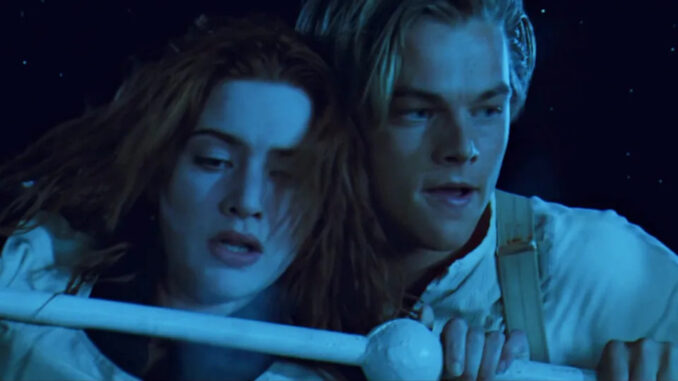
The RMS Titanic, a cinematic behemoth as much as a historical one, holds a hallowed place in the pantheon of film. Its sweeping romance, its harrowing tragedy, its meticulous detail – all contribute to a seemingly perfect narrative. Yet, even in the most revered works, there exist whispers of what might have been, tantalizing glimpses into alternate realities. For me, one such whispered possibility is a deleted scene where Jack Dawson, our free-spirited artist and lover, gets into a full-on, visceral fight with another character. And honestly, I’m bummed it was cut.
Imagine the scene: Not a staged, choreographed duel, but a messy, desperate brawl. Perhaps it’s in a cramped corridor in the bowels of the ship, or a dimly lit storage room, away from the glittering ballrooms and the watchful eyes of the elite. The instigator? Almost certainly Spicer Lovejoy, Cal Hockley’s menacing, ever-present bodyguard, or perhaps even Cal himself, driven to a primal fury by Rose’s defiance and Jack’s insolence. The trigger: a desperate attempt to retrieve the "Heart of the Ocean," or more likely, a final, brutal effort to separate Jack and Rose, to reclaim Rose for the world she was born into.
What makes the thought of this scene so compelling, and its absence so regrettable, is what it would have illustrated about Jack Dawson. The Jack we know is charming, witty, an artist with an unshakeable moral compass and a boundless capacity for love. He’s a dreamer, a poet, and profoundly kind. But he’s also a survivor, a vagabond who has seen the rough edges of the world. A physical confrontation would have unveiled an entirely different, yet equally vital, facet of his character: his raw, unvarnished courage.
Currently, Jack’s bravery is largely expressed through his emotional fortitude and his relentless optimism in the face of class prejudice and then catastrophic danger. He stands up to Cal with words, he offers Rose freedom with his spirit, he guides her through the sinking ship with unwavering resolve. These are profound acts of heroism. But a physical fight would have demonstrated a more primal, visceral kind of bravery – the kind born of necessity and self-preservation. It would have shown him willing to use his hands, his body, to protect Rose or himself, to push back against the forces that seek to crush their budding love.
This fight wouldn’t need to be a display of fighting prowess. Jack isn’t a trained brawler. Instead, it would be scrappy, desperate, maybe even a little clumsy. He’d be fighting not for victory, but for escape, for survival, for Rose. Picture him getting a few good, unexpected hits in, perhaps a well-placed headbutt or a surprising shove, fueled by adrenaline and righteous anger. He might even get beaten down, but his defiance, his refusal to yield, would be the true testament to his spirit. This would cement him not just as a romantic ideal, but as a grounded, capable man, making his later sacrifices even more impactful.
Furthermore, such a scene would have amplified the film’s central themes. Titanic is, at its heart, a story of class struggle and rebellion. Jack, the steerage passenger, defies the rigid social order embodied by Cal and his world. A physical confrontation with Lovejoy would have been a potent, albeit brief, manifestation of this conflict. It would have been the working class, literally, throwing punches at the enforcers of the aristocracy. It would underscore that their love story was not just a forbidden romance, but an act of outright rebellion, risking not just social censure but physical harm.
Moreover, a fight scene would have injected an earlier surge of adrenaline and immediate danger into the narrative before the iceberg. The film brilliantly builds tension through social conflict, but a physical altercation would have provided a stark reminder that life aboard the ship wasn’t all lavish dinners and forbidden kisses. It would have shown that violence, class prejudice, and the struggle for survival were already present, a simmering undercurrent, making the eventual maritime disaster feel like a culmination of existing pressures, rather than a sudden, isolated event.
Ultimately, I understand why it might have been cut. Perhaps it disrupted the delicate balance of romance and disaster, or it felt out of place with the elegant, albeit doomed, atmosphere of the ship. James Cameron’s vision was meticulously crafted, and every frame served a purpose. Yet, the thought of that deleted fight scene, of seeing Jack not just charm and endure, but also physically fight for what he believed in, for the woman he loved, adds a layer of depth and grit that I endlessly crave. It would have made the boy with the sketch pad and the ready smile even more of a hero – a fighter in spirit, and for a fleeting, powerful moment, in flesh as well. And that, for me, is a cinematic loss I’ll forever be bummed about.